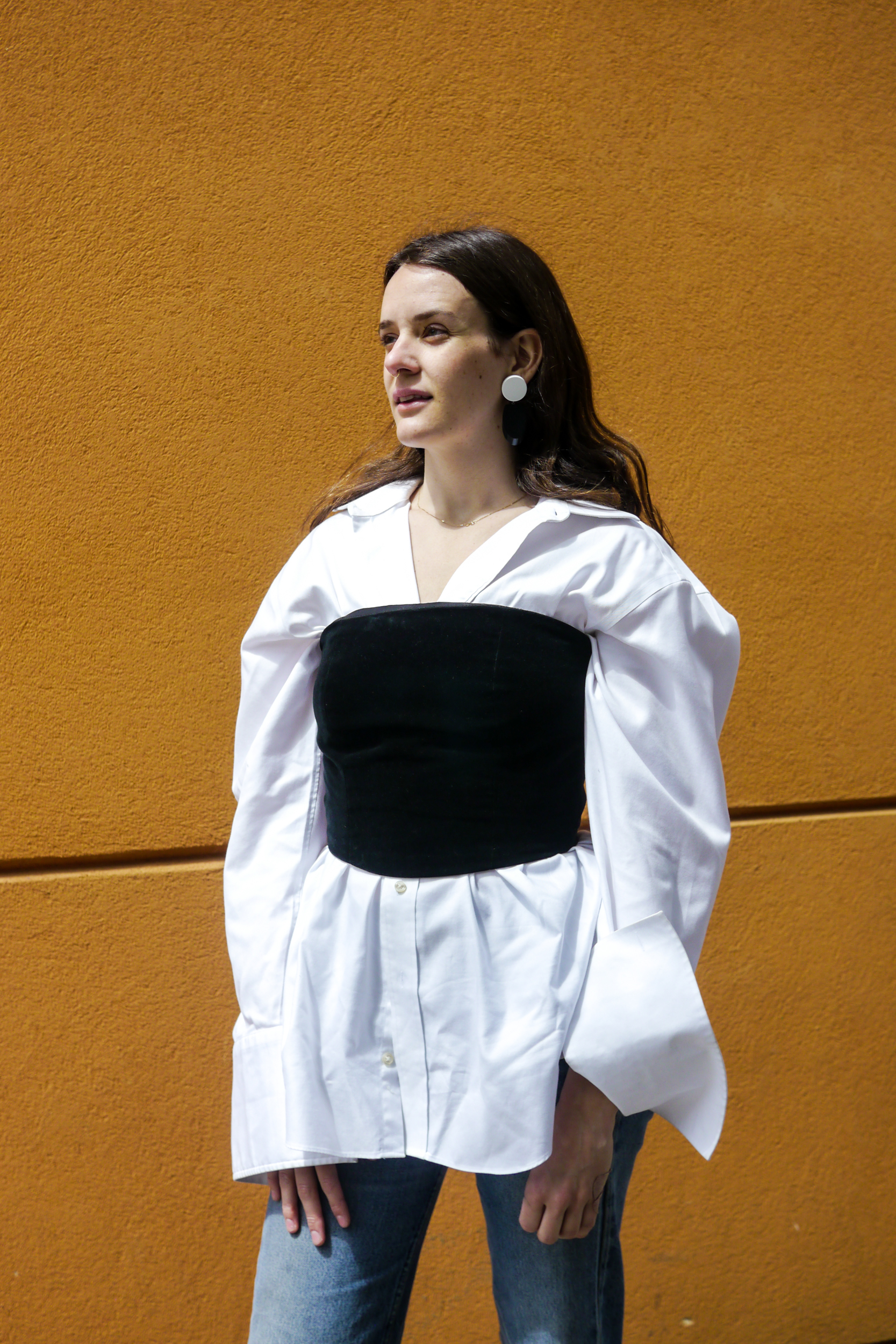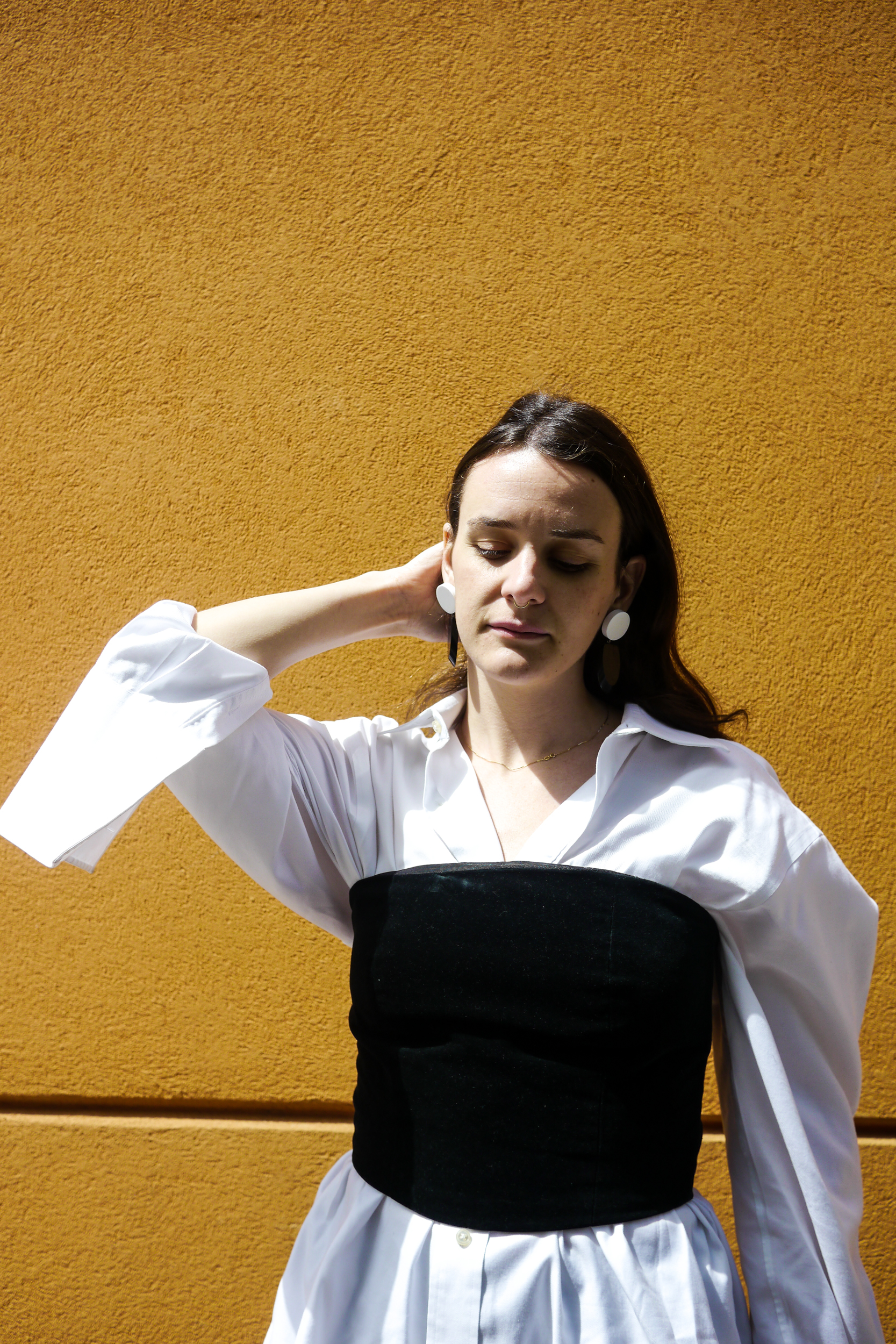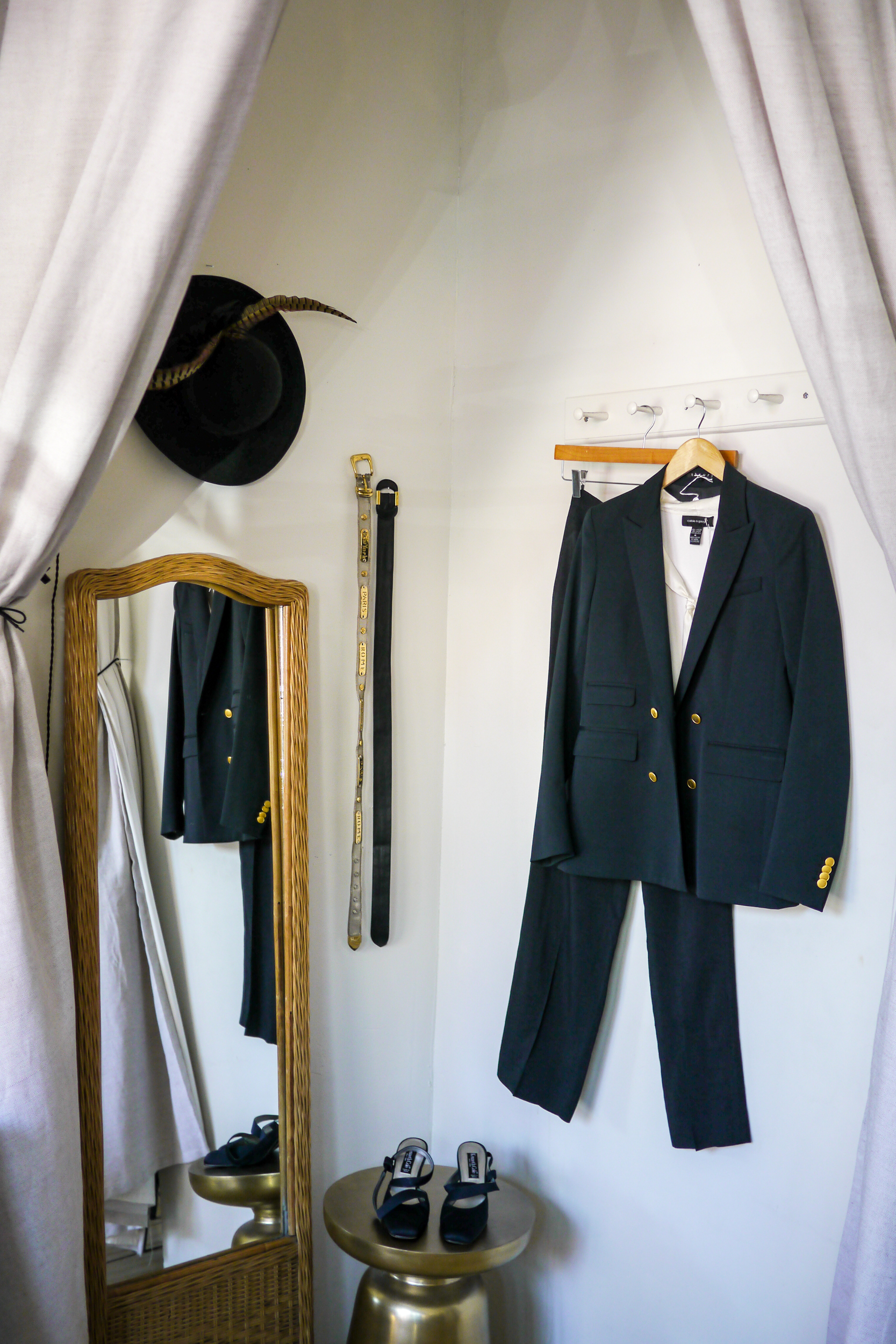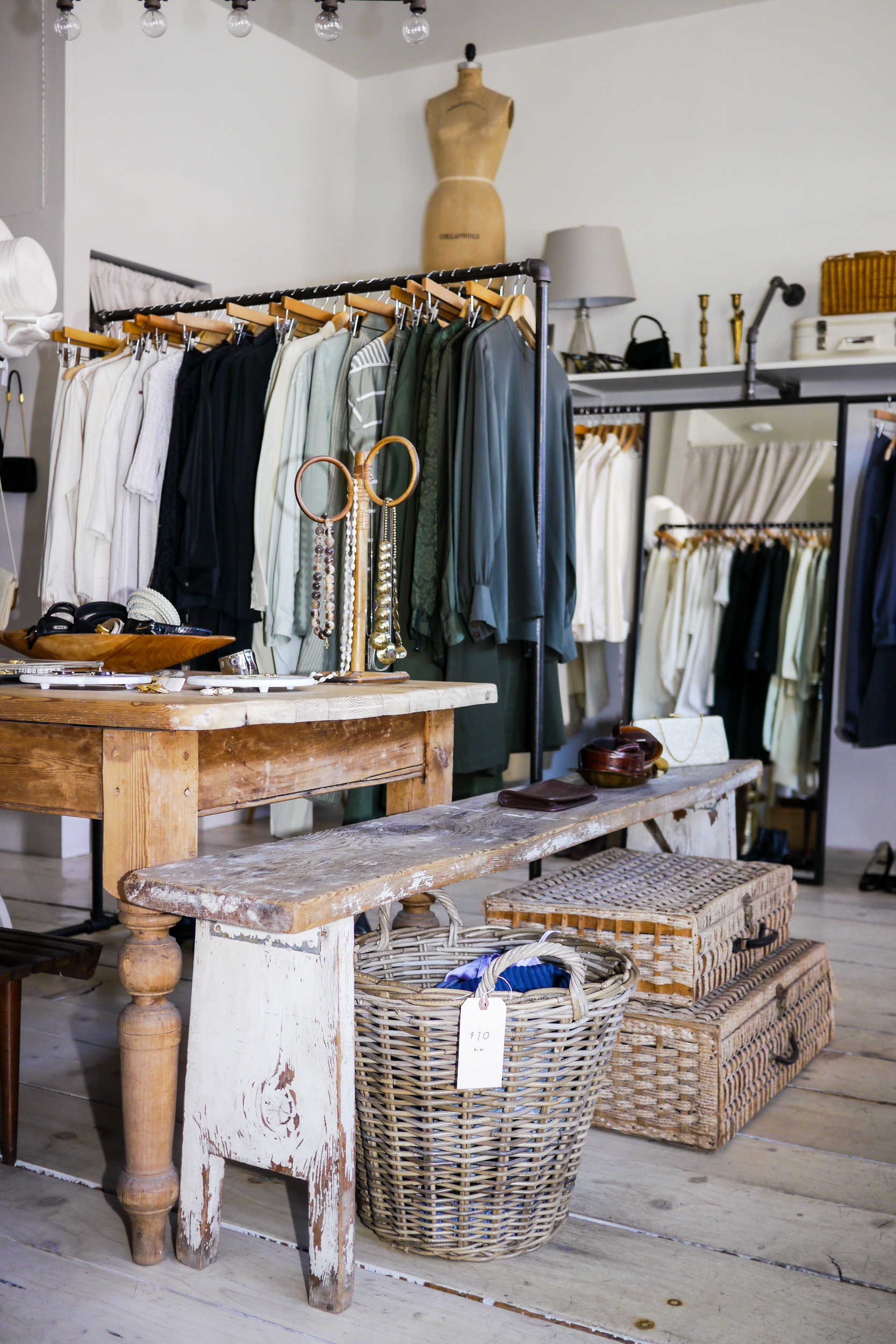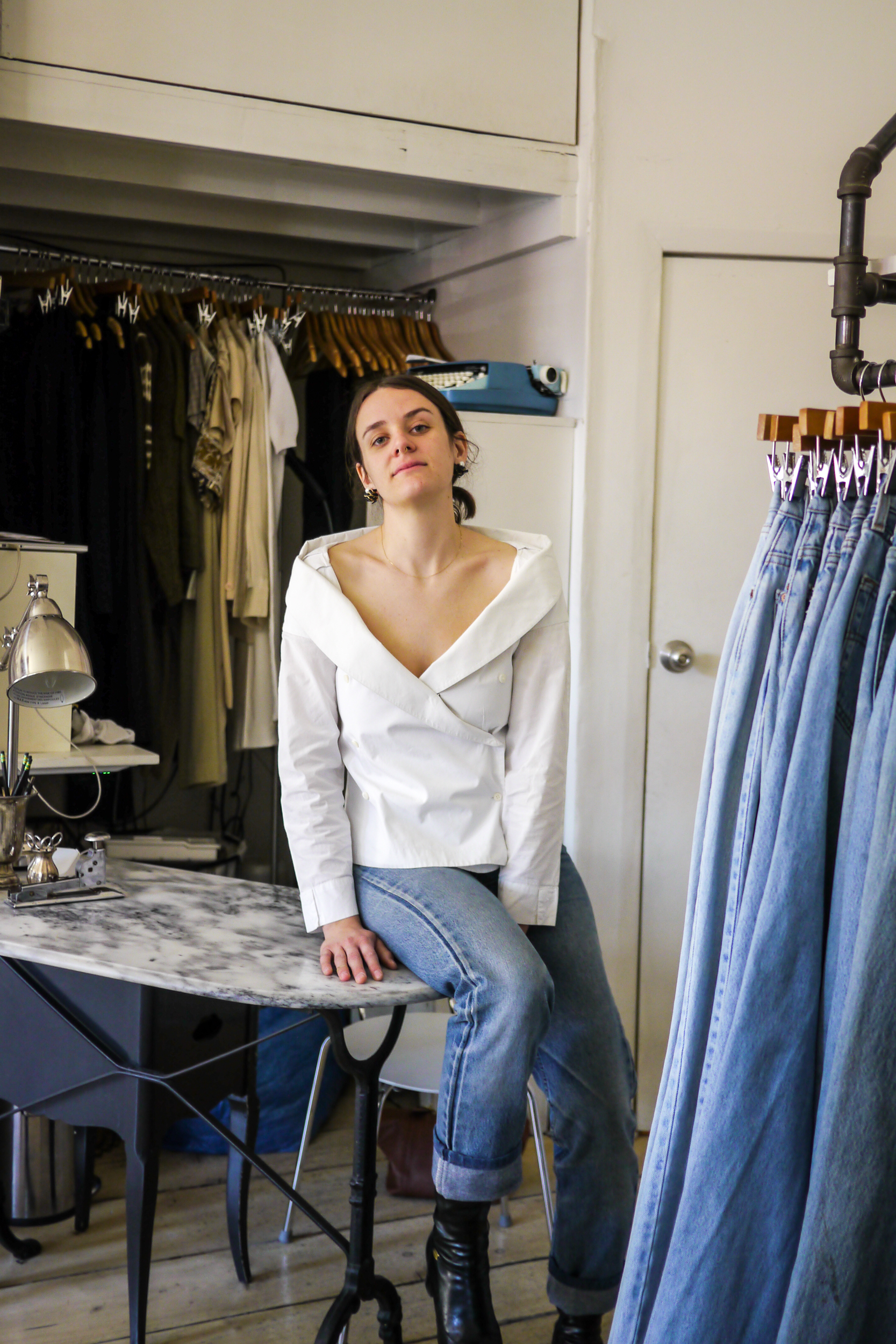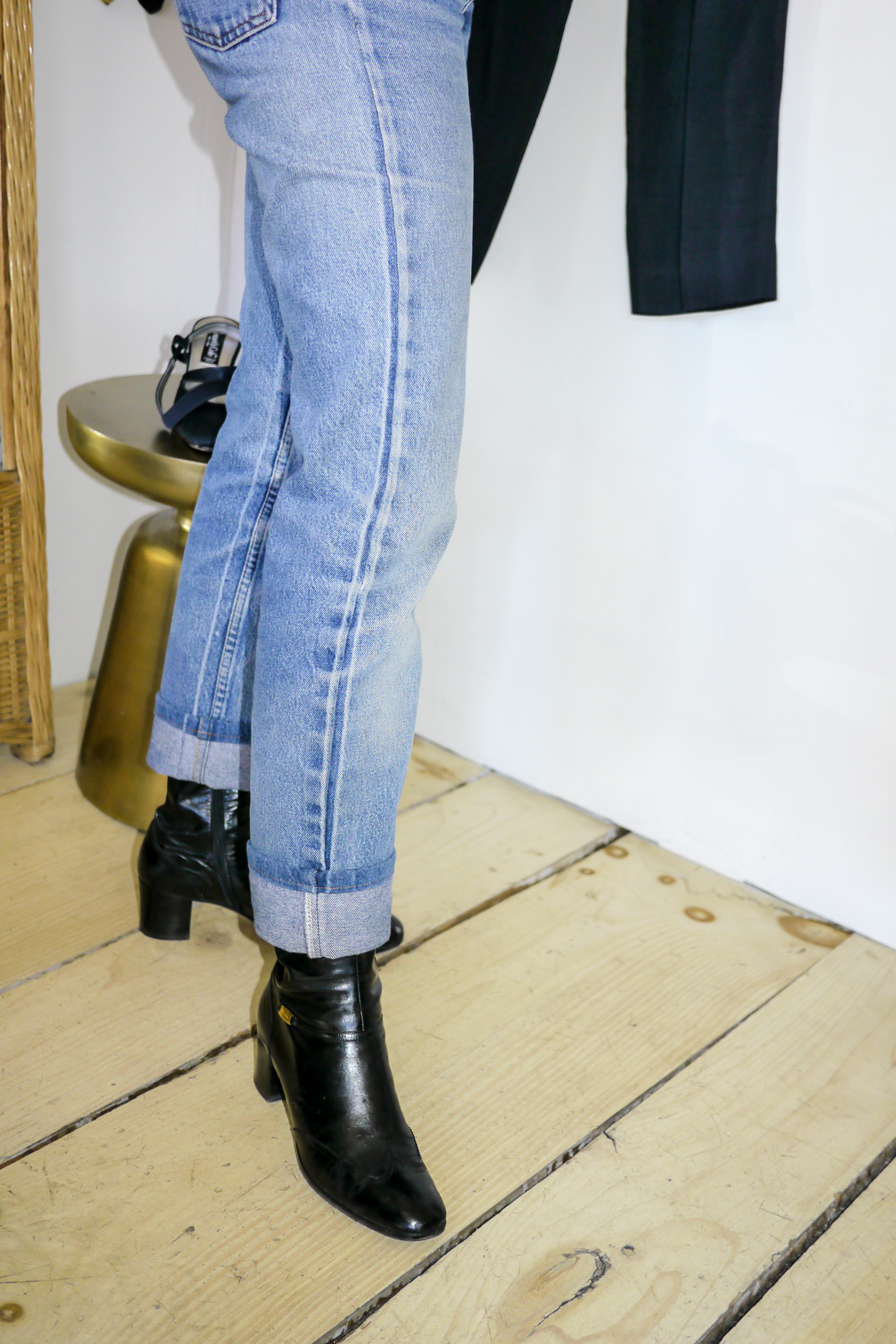Lauren Moetell of Mirth Vintage
“Mirth is a vintage shop in Greenpoint favored by fashionable Brooklynites looking for everyday pieces that will hold up over time.”
After featuring the shop on Passerguides, per the recommendation of passersby including Jenna Saraco, Nicole Steriovski, Sara Radin and Andrea Toscano, we wanted to ask owner Lauren Moetell about how she's built a successful business selling vintage in a saturated market. A lot of the pieces in the shop find their way to Brooklyn from country clubs and estate sales in places like Westchester County, where Moetell makes regular trips to curate a collection that will attract New York shoppers. She admits to being a bulk buyer, often walking away from sales with much more than she planned for, thanks to the encouragement of the old ladies she's befriended after years of small town church sales. Mirth is an expression of Moetell's own personal style, and the outfit she's wearing when we meet mimics the shop's aesthetic perfectly. In our conversation, she shares the details of what goes into running a vintage store.
So this space [mirth's store location] used to be another vintage shop where you worked. was your experience working there what inspired you to go out on your own and open a business?
No I was selling through Etsy shortly after graduating college just because I had so much stuff and I was thrifting so much. I would find things and it started off as kind of a joke like it was things I wasn't really into as much, but I knew other people would be that we're more 90s or whatever. The whole Etsy thing was mostly about photography and getting enough sunlight in my bedroom and it was a nightmare working alone. I moved to New York after graduating and couldn't really find anything for myself and so after New Year's I was like ‘I have to do something’ so I applied to the Brooklyn Artists & Fleas and ended up doing both for a few months that spring. Then over that spring I started setting things up to open here. It all happened very quickly. I was working part-time then straight to this and this is my first full-time job, first taxes, first everything. I got the place in June 2015 and it took like a week and a half to renovate and then opened. It was a little crazy I had a month before to get all the paperwork done
So what was that process of getting started officially? The technical steps like taxes and paperwork…
It was a lot. There’s a long list of steps so it was helpful that I had the former owner to tell me what I needed to do. You have to become a business and get your business license and then you need sales tax…it’s very hard to figure out the sequence. You need to get a sales tax permit and the second-hand dealers license which is to prevent theft so you’re not selling stolen goods. So I have my fingerprints taken and put in the system and that happens every two years. It was about a month of paperwork and then opening the shop. It took me a year so to get my style down and see who my customer is. It’s still refining, I sort of grew with it as it opened.
who in your mind is the mirth customer and the mirth womAn?
That’s the thing, I didn't know. I would think ‘I like this stuff’ and then I began to notice things like the color red never sold, I also hate red so I don't know why bought in the first place. Now I have a couple of things, but there's a palette. I rotate colors in and out, but they all have a certain feel to them. I don't wear skirts or dresses, that’s just a thing about me and I think that one of our strongest things is that we do a lot of pants. Pants are also hard to buy online, much harder than buying a top, and then Jeans are in such high demand. I was thrifting them all myself and it's exhausting because you can't just find them anymore really so I've been doing more wholesale and that's like a whole market, it's crazy competitive and I didn't know I was getting into. Sometimes I really wish that I wasn't the vintage jean market.
Can you tell me a little bit about the denim market?
It's a tricky thing I want to keep everything under one hundred dollars in here and sometimes I have to push those right up to the limit because it’s so rare that I get small sizes and my average customer size is 24-26. I get a lot of kids denim and 70s stuff that meet that the need for small sizes. I don't want to be one of those stores that sells jeans for $200 so it's been interesting from a weighing the cost vs. branding vs. vibe that I want.
do you work with buyers? Or how do you find your merchandise?
It’s not all thrifting I do most of it myself, but I don't do a lot of wholesalers because most of the things here are not typically vintage, like I'm not 60s or 70s. The whole concept of Mirth is to have wearable pieces that fill gaps and natural fibers are really important. So some things are not that old and they come from the estates of country club ladies in Westchester. I go to a lot of church and synagogue sales and through shops attached to nursery schools. I went to high school in Westchester so I’ve been going to a lot of these places since I was like 16 and the old ladies know me now. I just bought a huge hat the other day and they always say things like ‘that looks so perfect on you, you have to get it’ and I always end up with all of these ridiculous hats that I will never wear.
You’ll always be ready for the Kentucky Derby.
I like to think of myself as a Four Weddings and a Funeral type of person, but they totally convinced me to buy things.
So you go weekly to buy?
Yes, my storage in my apartment is organized by color and season — it’s crazy, my poor roommates.
How do you go about assigning prices to clothes?
Age and material. I'm not a vintage person that's like into value and rare pieces are really necessarily. Designer pieces I will make more expensive, but I don’t I don't think anything in here is over $150 right now. For value you have to research a lot and explain to people you know, ‘this is made in 1977’ and so on. So I started have to short sleeve shirts and tank tops at one price, then long sleeve shirts are little more expensive, and then pants sometimes overlap with jackets. For me it's more about item and size.
Do you think it’s important to have someone lead you through the process of opening a shop? A guide of sorts or somebody to get advice from.
I opened this by myself and I don't regret not having another creative partner because sometimes it makes things more complicated creatively if you have two ideas even if they are really harmonious. But my parents still live in Midtown and I’m sort of a property manager for my mom and she does my books. We have a very helping each other relationship, without her I would be totally f**ked. Knowing that you can't do everything by yourself and having someone you can bounce ideas off of whether it be creatively or someone you can ask ‘can you remind me to do my sales tax’, ‘I don't know if I should be paying people weekly’, ‘what payroll services should I be using’. Even if you can handle most of the creative ones yourself you've got to have someone that can at least point you in the right direction. Now they have business services that you can use too. So I don't know about a mentor, but it's definitely useful to get knowledge from another owner about the nuts and bolts if you're doing it yourself.
So if you were to be your mom for some of our readers what are some concrete pieces of advice you would give them?
I use Square it takes the highest percentage from me but it's incredibly reliable and it's a really easy interface. I use the records for for my bookkeeping and now I have an online bookkeeping service - which you should do from the beginning - I use Zero, but quickBooks has better in person help. Just having one of those online resources, like Square, just from their checkout program I can put in and see how much money I made between now and when I opened for last week and compare last week to the other week. It's very analytic and the analytics are really worth the extra money.
What was the most daunting task of first setting up shop?
I think I've grown out of the self-doubt that I experienced when I first started. There’s so many other vintage shops to compare yourself to New York. Instagram is also such a nightmare, sometimes I’ll be like, ‘they have better photography than me’ and you can get into sort of a hole. But it’s your business and you’re thinking ‘I should be doing this this and this like this shop and these people’. But you can also see a range of approaches from all over the country or the world doing the same thing you are and it's great because it's influenced me and helped me to see what is successful and what's not. Even though you might make it competitive in your head the vintage communities are all made up of nice women who want to do what they love. It’s probably the best industry of people I could ever think of. I've met really good people and I have internet friends and I know if I go to Portland I have to look up these people and they’ll know who I am or we’ll do something collaborative over. One woman has a shop upstate so it's fun having a community, but opportunities for self comparison can be hard. One really important thing I learned when I opened is that you'll be successful if you do what you love. If you're buying for other people it's not going to work out. I like everything here [at Mirth] and it's a reflection of me. I think your taste is one of the most powerful things you have and you shouldn't compromise it because you think you can make more money.
Do you have a Style icon?
Movies are very important to me because I can't read magazines — they’re overwhelming. I always go back to Katharine Hepburn and women wearing pants, work-wear and glasses and stuff. I just watched her [Katherine Hepburn] in DeskSet which is a 50’s movie on Netflix. They don't put her in pants so that's sad, but simple architectural clothes.
Are you planning on selling home objects?
Not in here, there’s not enough space. That’s my plan if I leave New York.
Where would you go?
I don’t know, my boyfriend is getting the PhD and eventually he will want to be a professor so it depends. If it’s a smaller city and I’m having this into middle age I think that adding home stuff is a really good idea because not everywhere has a strong vintage market. That's definitely in the back my head.
You can visit Mirth at their shop on Manhattan Ave in Greenpoint. Follow @mirthvintage on Instagram for more style inspo.
Words by Katy Halowell


